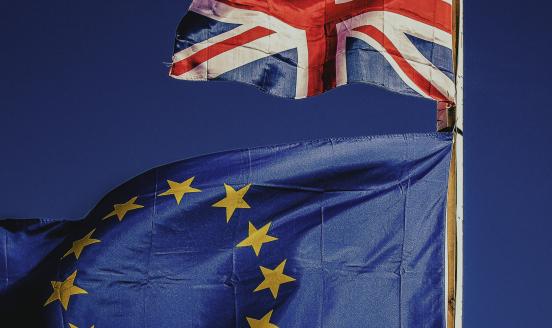The three dangers of Brexit
Guntram Wolff looks at the economic and geopolitical consequences if the "leave" vote wins the Brexit referendum on 23 June.
This op-ed was originally published in Nikkei, Nikkei Asian Review, Manager Magazin, Finance, Expansíon, Sina,
Naftemporiki and Gazeta Prawna.








As the June 23 U.K. referendum on European Union membership approaches, the outcome looks more uncertain than ever. Some polls show a slight lead for the remain camp, while others show the opposite. Previous experience suggests that the outcome of referenda is unpredictable, but the probability of the U.K. leaving the EU is certainly high enough to merit a thorough analysis of its implications. Beyond the problems that a "leave" vote would create for the unity of the United Kingdom and for its domestic politics, I would emphasise three main issues.
The first question is about the economic consequences of leaving. Many international companies, including Japanese conglomerate Hitachi, have announced that if "leave" wins, they might move some of their European business outside the U.K. Some American banks based in London have said privately that London's legal status to provide banking activities to the EU is an indispensable part of their business model. At the same time, the U.K.'s main trading partner is the European Union. Undoubtedly, a decision to leave the European Union could have major economic consequences.
The magnitude of the economic consequences will depend on the negotiations following a decision to leave. If the U.K. decides to formally start the process of leaving, it could take two years to agree the terms of the divorce. This could be followed by several years of negotiations to establish new trade deals between the U.K. and all the major economic partners with which the EU currently holds trade and investment agreements.
It is difficult to predict the results of all the new treaties. But given that the U.K. is a significantly smaller economic power than the EU I find it hard to believe that the terms of the deals will be favourable to the U.K. The European Union will certainly insist on compliance with the rules governing the European market if the U.K. wishes to trade goods and services with it. For financial services, the EU and its institutions will likely try to relocate euro-denominated trading to the continent but they could be tempted to go beyond and force more financial activities to be located on the continent.
The geopolitical implications of a decision to leave the EU are underestimated. The European Union is a unique construction, born after World War II to shape a peaceful European continent based on laws and institutions. In practical terms, it has become a daily forum of interaction for officials of all levels, allowing information to be shared across 28 countries. It is difficult to overestimate the importance of this network. In fact, in a time in which conflicts have shifted from outright hard-power confrontations towards more "hybrid warfare", networks, institutions, personal trust and information exchange have become an essential element of stability.
Finally, it would be economically and politically detrimental to the remainder of the EU if the U.K. leaves. A popular vote to leave could fuel populist sentiment in other EU countries. Demands to negotiate a special relationship with the EU with less responsibility and the same benefits could increase.
The EU, and Germany and France in particular, will need to prepare a response to such tendencies. Making an exit costly is one approach that some countries may want to pursue. This would send a signal but be costly not just to the U.K. but also to the continent that desperately needs to sustain its gradual recovery. Therefore, policymakers should focus on improving the economic growth prospects of the EU and enhancing its democratic legitimacy. Overall, a U.K. vote to leave would be a highly disruptive event both economically as well as politically. Policymakers around the world should be prepared.



